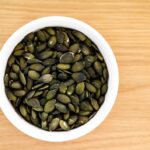Maintaining healthy joints is crucial for overall mobility and quality of life, especially as one ages. Joint pain and inflammation can be exacerbated by certain dietary choices. South Africans, like people everywhere, can benefit from being mindful of what they eat to promote joint health. Here are 20 foods to avoid for healthier joints.
1. Sugar
Excessive sugar consumption can lead to increased inflammation in the body, which can aggravate joint pain. This includes sugary drinks, candies, and desserts.
2. Processed Foods
Highly processed foods often contain unhealthy fats, sugar, and additives that can contribute to inflammation. Avoid snacks like chips, packaged cookies, and ready-to-eat meals.
3. Refined Carbohydrates
White bread, pastries, and other refined carbs can cause spikes in blood sugar levels, leading to inflammation. Opt for whole grains instead.
4. Red Meat
Red meats such as beef and lamb contain high levels of saturated fats, which can trigger inflammatory responses in the body.
5. Fried Foods
Foods that are deep-fried or heavily fried in oils can increase inflammation due to their high content of trans fats and unhealthy oils.
6. Dairy Products
Some people may be sensitive to the proteins found in dairy, which can lead to increased inflammation and joint pain. Consider trying plant-based alternatives.
7. Alcohol
Excessive alcohol consumption can lead to dehydration and increased uric acid levels, exacerbating joint pain, especially in conditions like gout.
8. Salt
High sodium intake can cause water retention and increase blood pressure, potentially leading to inflammation. Limit salt intake and avoid high-sodium processed foods.
9. Artificial Additives
Artificial colors, flavors, and preservatives found in many processed foods can contribute to inflammation. Check food labels to avoid these additives.
10. Aspartame
This artificial sweetener, often found in diet sodas and sugar-free products, has been linked to increased inflammation and should be consumed with caution.
11. High-Fat Dairy
Full-fat milk, cheese, and butter contain saturated fats that can contribute to inflammation. Choose low-fat or plant-based dairy alternatives.
12. Processed Meats
Sausages, hot dogs, and other processed meats contain high levels of sodium, preservatives, and unhealthy fats, all of which can contribute to joint inflammation.
13. Gluten
For those with gluten sensitivity or celiac disease, gluten can cause significant inflammation. Avoid wheat, barley, and rye-based products if you have a sensitivity.
14. Corn Oil
High in omega-6 fatty acids, corn oil can promote inflammation when consumed in excess. Opt for oils with a better omega-3 to omega-6 ratio, such as olive oil.
15. Tomatoes
While generally healthy, tomatoes contain solanine, which can cause inflammation in some people with certain conditions like arthritis. Monitor your response to this vegetable.
16. Eggplant
Similar to tomatoes, eggplants contain solanine and may exacerbate joint pain in sensitive individuals. Pay attention to how your body reacts to them.
17. Potatoes
Also part of the nightshade family, potatoes contain solanine. While not everyone is sensitive, those with arthritis might find reducing intake beneficial.
18. Peppers
Bell peppers and hot peppers contain solanine as well, and can trigger inflammation in sensitive individuals. Consider other vegetables if you notice increased joint pain.
19. Coffee
While moderate coffee consumption can have health benefits, excessive intake can lead to dehydration and increased inflammation. Limit your coffee intake to moderate levels.
20. Shellfish
For those with gout, shellfish can be problematic due to their high purine content, which can lead to increased uric acid levels and joint pain.
Being mindful of your diet can significantly impact your joint health and overall well-being. By avoiding or limiting these 20 foods, South Africans can reduce inflammation and support healthier joints. Incorporate anti-inflammatory foods like fruits, vegetables, whole grains, and healthy fats into your diet to help maintain joint health and improve your quality of life. Always consult with a healthcare provider or nutritionist for personalized dietary advice, especially if you have specific health conditions.








